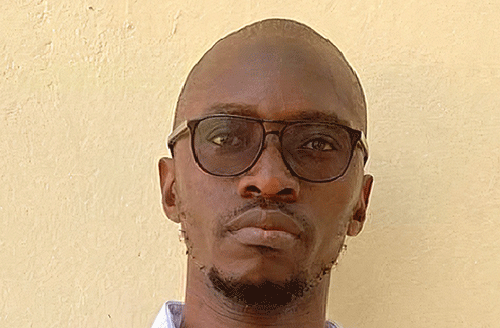Kanyanga Ndara
Having read the demands from the attendees of the fifth Boundary Delimitation and Demarcation Commission recently held in the Zambezi region, I feel the need to respond to what I deem dangerous tribal provocations and threats to our unity and peace.
When Europeans demarcated Africa into countries, they did so in their interests to exploit the resources of Africa with ease by ensuring that their colonies had enough natural resources to exploit, and unfortunately, African traditional boundaries were violated and not taken into consideration.
As a result, many tribes in Africa are separated by this demarcation, and many lost their tribal lands. In Namibia, I would give the example of Kavango region. Prior to the demarcation of Africa by the Europeans, people in Kavango lived on both sides of the Okavango River. After the demarcation, it meant they had to choose which side of the river they would settle on.
If they opted for the northern bank of the river, they would be part of Portuguese Angola, and if they opted to settle on the southern bank of the river, they would be German South West Africans, present-day Namibians. Most of them settled on the southern bank of the river in present-day Namibia, and the northern bank of the river in present-day Angola was mostly uninhabited. In other words, these people lost part of their territory that lies in Angola.
The same thing was done by the South African government when they demarcated our regions in Namibia. Some ethnic boundaries were violated and not taken into consideration. For example, the first official boundary map of the Kavango region from 1937 to 1968 shows that the region stretched from the present-day eastern Oshikoto region and ended east at Divundu.
The question we should ask ourselves is: did the colonial government consult traditional leaders and their advisors when they drew this erroneous map of Kavango, or did they solely rely on their own judgement and understanding? Is it reasonable today for anyone in Namibia to claim the old Kavango map is legitimate and authentic?
What is the point of adhering to erroneous colonial boundaries set up by people who didn’t do their due diligence when we are no longer under colonialism?
Now, coming to the issue of the boundary of the Zambezi region, it is true that the boundary of the Zambezi region has been reduced over the past decades. However, the rationale behind the reduction of the Zambezi region is the same as why eastern Oshikoto is not part of the Kavango region today.
We cannot demand to go back to colonial boundaries that violated and divided ethnicities in Namibia.
Before the delimitation of the Caprivi region, a significant number of people who self-identify as Kavango found themselves in the Caprivi region. This erroneous colonial boundary inadvertently caused the Mbukushu territory to stretch from Kavango to the Caprivi region, hence rendering interaction between the Mbukushu and their traditional authority harder, especially for those who found themselves in the Caprivi region. This is one of the reasons why the Boundary Delimitation and Demarcation Commission was set up, to correct these colonial boundaries by demarcating our regions according to our ethnicities, especially in northern Namibia.
Before the boundary of Caprivi was reduced and the region was renamed Zambezi, and before the Kavango region was divided into two regions, consultations took place and all relevant players, including those in the Zambezi region, were involved.
The government of Namibia did not wake up and decided, to give part of the Zambezi region to Kavango, as some people purported. Rather, they corrected the ethnic boundary between those who self-identify as Kavangos and those who self-identify as Zambezians. Again, all relevant players had to reach consensus before deciding to move the border between Kavango and the Zambezi region.
The people who are pushing this agenda have underlying reasons to destabilise our country by igniting a tribal conflict between people of Kavango and those of Zambezi, people who lived in harmony as neighbours for hundreds of years. It is the duty of all Namibians to resist any forces intending to destabilise our peace and stability.
Lastly, I would aurge relevant auth
orities to engage the mass and disseminate right information to the masses not to be led astray by people who have hidden agendas of destabilising our country.
*Kanyanga Ndara holds a Bachelor Degree in Education from the University of Namibia and a Master of Educational Technologies from the University of Zambia.


